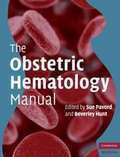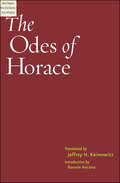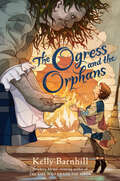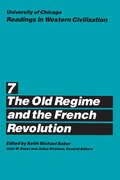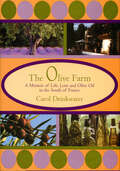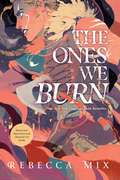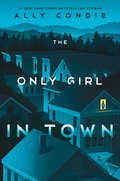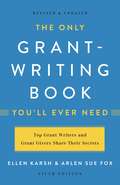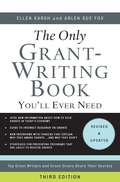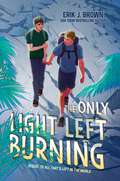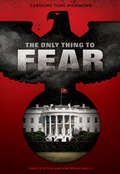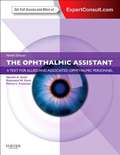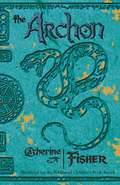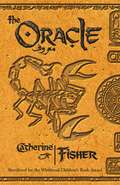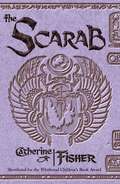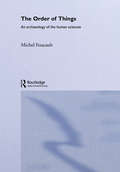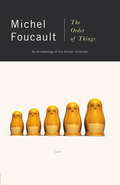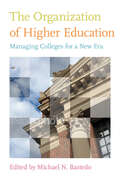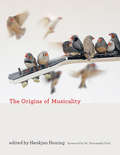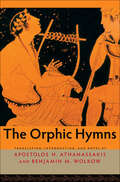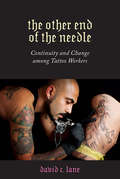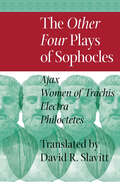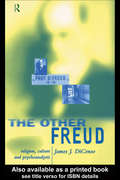- Table View
- List View
The Obstetric Hematology Manual
by Sue Pavord Beverley HuntObstetric hematology is a fast-growing area of medicine covering the diagnosis and management of hematological problems of pregnancy. Comprehensive in approach, The Obstetric Hematology Manual addresses the many hematological conditions that can cause serious problems in pregnancy, delivery and the post-partum period for both mother and baby. Written by a team of international authorities, this text provides up-to-date, evidence-based guidelines on best care, as well as sound advice based on the experience and opinion of experts. Where appropriate, basic principles are discussed to clarify the rationale for management, and systems and procedures for disease prevention are highlighted. Many conditions and cases are discussed, including venous thromboembolism, pre-eclampsia, anemia, thrombocytopenia and inherited disorders. This book will appeal to both trainees and practitioners in obstetrics, obstetric medicine, obstetric anesthesia and hematology. It is also an accessible text for midwives, nurses, and laboratory staff.
The Odes of Horace (Johns Hopkins New Translations from Antiquity)
by Horace (Quintus Horatius Flaccus)2009 Outstanding Academic Title, ChoiceThis groundbreaking new translation of Horace’s most widely read collection of poetry is rendered in modern, metrical English verse rather than the more common free verse found in many other translations. Jeffrey H. Kaimowitz adapts the Roman poet's rich and metrically varied poetry to English formal verse, reproducing the works in a way that maintains fidelity to the tone, timbre, and style of the originals while conforming to the rules of English prosody. Each poem is true to the sense and aesthetic pleasure of the Latin and carries with it the dignity, concision, and movement characteristic of Horace’s writing. Kaimowitz presents each translation with annotations, providing the context necessary for understanding and enjoying Horace's work. He also comments on textual instability and explains how he constructed his verse renditions to mirror Horatian Latin. Horace and The Odes are introduced in lively fashion by noted classicist Ronnie Ancona.
The Official Five Nights at Freddy's Cookbook (Five Nights at Freddy's)
by Scott Cawthon Rob MorrisThe one and only OFFICIAL Five Nights at Freddy's Cookbook, an AFK book, with over 40 recipes inspired by the hit games. Delight in over forty tasty recipes inspired by the Five Nights at Freddy's games, with gorgeous, eye-popping photography! From Freddy Fazbear's Pepperoni X-Press and Chica's Ultimate Thai Chicken Burger, to Foxy's Fruity Cove Coolor and El Chip's Fully Loaded Tortillas, the official Five Nights at Freddy's Cookbook is packed with mouthwatering recipes that are hauntingly delicious. <P><P><i>Advisory: Bookshare has learned that this book offers only partial accessibility. We have kept it in the collection because it is useful for some of our members. Benetech is actively working on projects to improve accessibility issues such as these.</i> <p> <b>New York Times Bestseller</b>
The Ogress and the Orphans
by Kelly BarnhillA National Book Award finalist and instant fantasy classic about the power of community, generosity, books, and baked goods, from the author of the beloved Newbery Medal winner The Girl Who Drank the Moon. The town of Stone in the Glen used to be lovely, but it hasn&’t been so in a very long time. Once a celebrated town with a vibrant town square, prosperous businesses and families, and educated, happy children, Stone in the Glen has fallen on hard times. Since the expansive and beloved Library burned with other buildings in a time of terrible fires, the town has been plagued by droughts, blight, and destruction. But the people have continued to put their faith in the Mayor, a dazzling fellow with a bright shock of golden hair and brilliant white teeth who promises that he alone can solve their problems. And he is a famous dragon slayer! At least, no one has ever seen a dragon in the Mayor&’s presence… But somebody is to blame for the town&’s problems, not only the fires and the decline that followed them, but the child who has gone missing from the local Orphan House. And with a little helpful suggestion from the Mayor, all eyes turn to the Ogress who has come to live at the far edge of town. Only the children of the Orphan House know the truth. Together, they must clear the Ogress's name and solve the mystery of the town's destruction before their home of Stone in the Glen is destroyed by its own people.
The Old Regime and the French Revolution (Readings in Western Civilization, Volume #7)
by John W. Boyer Julius KirshnerThe University of Chicago Readings in Western Civilization (nine volumes) makes available to students and teachers a unique selection of primary documents, many in new translations. These readings, prepared for the highly praised Western civilization sequence at the University of Chicago, were chosen by an outstanding group of scholars whose experience teaching that course spans almost four decades. Each volume includes rarely anthologized selections as well as standard, more familiar texts; a bibliography of recommended parallel readings; and introductions providing background for the selections. Beginning with Periclean Athens and concluding with twentieth-century Europe, these source materials enable teachers and students to explore a variety of critical approaches to important events and themes in Western history. Individual volumes provide essential background reading for courses covering specific eras and periods. The complete nine-volume series is ideal for general courses in history and Western civilization sequences.
The Olive Farm: A Memoir of Life, Love and Olive Oil in South of France
by Carol Drinkwater"All my life, I have dreamed of acquiring a crumbling, shabby-chic house overlooking the sea. In my mind's eye, I have pictured a corner of paradise where friends can gather to swim, relax, debate, eat fresh fruits picked directly from the garden and great steaming plates of food served from an al fresco kitchen and dished up on to a candlelit table the length of a railway sleeper. . . " When Carol Drinkwater and her partner Michel have the opportunity to buy 10 acres of disused olive farm in Provence, the idea seems absurd. After all, they don't have a lot of money, and they've only been together a little while. THE OLIVE FARM is the story of the highs and lows of purchasing the farm and life in Provence: the local customs and cuisine; the threats of fire and adoption of a menagerie of animals; the potential financial ruin and the thrill of harvesting their own olives - especially when they are discovered to produce the finest extra-virgin olive oil. . .
The Ones We Burn
by Rebecca MixAn instant New York Times bestseller! Love and duty collide in this richly imagined young adult debut about a witch whose dark powers put her at the center of a brewing war between the only family she&’s ever known and the enemy who makes her question everything. Featuring a brand-new short story and character art!Monster. Butcher. Bloodwinn. Ranka is tired of death. All she wants is to be left alone, living out her days in Witchik&’s wild north with the coven that raised her, attempting to forget the horrors of her past. But when she is named Bloodwinn, the next treaty bride to the human kingdom of Isodal, her coven sends her south with a single directive: kill him. Easy enough, for a blood-witch whose magic compels her to kill. Except the prince is gentle, kind, and terrified of her. He doesn&’t want to marry Ranka; he doesn&’t want to be king at all. And it&’s his sister—the wickedly smart, infuriatingly beautiful Princess Aramis—who seems to be the real threat. But when witches start turning up dead, murdered by a mysterious, magical plague, Aramis makes Ranka an offer: help her develop a cure, and in return, she&’ll help Ranka learn to contain her deadly magic. As the coup draws nearer and the plague spreads, Ranka is forced to question everything she thought she knew about her power, her past, and who she&’s meant to fight for. Soon, she will have to decide between the coven that raised her and the princess who sees beyond the monster they shaped her to be. But as the bodies pile up, a monster may be exactly what they need.
The Only Girl in Town
by Ally Condie&“An eerily beautiful and lyrical story of loss, grief, and how quickly relationships can change, while also changing us.&” —Robin Benway, National Book Award winner and bestselling author of Far From The Tree and A Year to the Day &“Fast-paced, unputdownable, and full of heart and complicated emotions. An unforgettable story.&” —Yamile Saied Méndez, Pura Belpré Award–winning author of Furia, a Reese&’s Book Club selectionWhat would you do if everyone you love disappeared? What if it was your fault?For July Fielding, nothing has been the same since that summer before senior year.Once, she had Alex, her loyal best friend, the one who always had her back. She had Sydney, who pushed her during every cross-country run, and who sometimes seemed to know July better than she knew herself. And she had Sam. Sam, who told her she was everything and left her breathless with his touch.Now, July is alone. Every single person in her small town of Lithia has disappeared. No family. No Alex or Sydney. No Sam. July&’s only chance at unraveling the mystery of their disappearance is a series of objects, each a reminder of the people she loved most. And a mysterious message: GET TH3M BACK.From the #1 bestselling author of the Matched series, The Only Girl in Town is a searingly candid reckoning with both love and loneliness that perfectly distills the messy, beautiful realities of growing up, growing apart, and the courageous act of self-discovery.
The Only Grant-Writing Book You'll Ever Need
by Ellen Karsh Arlen Sue FoxFrom top experts in the field, the definitive guide to grant-writingWritten by two expert authors who have won millions of dollars in government and foundation grants, this is the essential book on securing grants. It provides comprehensive, step-by-step guide for grant writers, including vital up-to-the minute interviews with grant-makers, policy makers, and nonprofit leaders. This book is a must-read for anyone seeking grants in today's difficult economic climate.The Only Grant-Writing Book You'll Ever Need includes:Concrete suggestions for developing each section of a proposalHands-on exercises that let you practice what you learn A glossary of termsConversations with grant-makers on why they award grants...and why they don'tInsights into how grant-awarding is affected by shifts in the economy
The Only Grant-Writing Book You'll Ever Need
by Ellen Karsh Arlen Sue FoxThis book is designed to help nonprofit organizations craft proposals for grants from foundations, companies, and government agencies. Ellen Karsh, a writer and former director of the Mayor's Office of Grants Administration, in New York, and Arlen Sue Fox, associate executive director for development at Sunnyside Community Services, also in New York, significantly update this edition from 2005 by including interviews with grant makers about how the current economic crisis is affecting their giving and how grant seekers can improve their chances of garnering support. The book includes a proposal checklist, a glossary of terms, sample grant forms, and a list of Web sites that provide information on grants offered by foundations, corporations, and the government. --from the Chronicle of Philanthropy
The Only Grant-Writing Book You'll Ever Need
by Ellen KarshA new edition of the most sought-after grant-writing guide, revised and updated for grant-seekers in todayOCOs economy
The Only Light Left Burning
by Erik J. BrownWhat If It's Us meets They Both Die at the End in this sequel to the beloved postapocalyptic queer YA adventure romance All That's Left in the World by USA Today bestselling author Erik J. Brown. Perfect for fans of Adam Silvera, Alex London, and Heartstopper by Alice Oseman.After a long and treacherous journey south, Andrew and Jamie have finally found safety in the Florida Keys. But they soon learn that safety doesn't always mean happily ever after.Settling into life in the Islamorada colony with other survivors of the bug, Andrew believes they've finally found themselves a home, even a family. But anxious Jamie is less comfortable in their new community and is eager to return north to keep the promise they made to their friend Henri—to bring her to the colony and reunite her with her daughter. Besides, would it really be so bad to find someplace just for the two of them?When a hurricane and a shocking betrayal force them to leave the colony in search of new shelter, it brings their tensions to a head—and puts them in the path of some old enemies. Andrew and Jamie must set aside their differences to survive once more and find a new home. But what if "home" means different things to each of them?
The Only Thing to Fear
by Caroline Tung RichmondIn a stunning reimagining of history, debut author Caroline Tung Richmond weaves an incredible story of secrets and honor in a world where the Axis powers won World War II.In a world where the Axis powers won WWII, the US has been divided up by the victors and the eastern half has fallen under oppressive Nazi rule for nearly 70 years. 16-year-old Zara longs for an America she's only read about -- free from persecution for being a non-Aryan. And she's not alone. The rumblings of a revolution have started, and Zara finds herself drawn into a rebel group determined to overthrow the Third Reich. When Bastian, the charming son an SS officer, approaches Zara about joining the Alliance, she denies all knowledge. Yet Bastian is determined, and Zara quickly decides it'll be easier to keep an eye on an enemy if she knows where he is. Especially since Zara has a dangerous secret that, if discovered by the Nazis, would land her in either a labor camp or a grave. But her secret might very well be the key to taking down the Führer. Can Zara and the Alliance topple the Third Reich for good, or will Bastian betray her, forcing Zara to pay the ultimate price for freedom?
The Ophthalmic Assistant: A Text for Allied and Associated Ophthalmic Personnel
by Harold A. Stein Raymond M. Stein Melvin I. FreemanExcel in your clinical responsibilities with The Ophthalmic Assistant. Whether you work in an ophthalmology, optometry, or opticianry setting, this best-selling reference delivers expert practical, up-to-date guidance on ocular diseases, surgical procedures, medications, and equipment as well as paramedical procedures and office management - providing all the knowledge and skills you need to be a valuable asset to your team. A real "how-to" textbook. Practical guidance to help you tackle the ophthalmic challenges and cases you face everyday
The Oracle Sequence: The Archon
by Catherine FisherBreathtaking sequel to The Oracle, the Archon must face a journey of treachery and adventure across the pitiless desert in a bid to save his people ...The Archon vows to lead a pilgrimage to the Well of Songs to seek peace with the Rain Queen and save the land from the terrible drought. The Well is hidden in the mountains across the desert. But he is not the only one with his sight set on the mountains: Argelin, the tyrannical and power-hungry General, follows behind, an ever-present threat, with his heart set on the riches to be found.With only Oblek, Seth and two tomb-thieves known as the Jackal and the Fox for company, the Archon's journey is treacherous and dangerous. They must face the Great Desolation and the monstrous animals outlined on the desert floor, animals with mythical powers, and they must survive without Mirany, bearer-of-the-god and true friend of the Archon, who has had to remain behind to face a threat much closer to home ...
The Oracle Sequence: The Oracle (Oracle Prophecies Ser. #1)
by Catherine FisherIn the distant land of deserts and islands, the servants of the god rule the land, his wishes conveyed through the Oracle and interpreted by the High Priestess. Mirany is the new Bearer, afraid of her perilous duties for the god in the rituals of the Oracle, and fearful of her secret questioning ... Does the god truly exist?The priestess is corrupt and in secret partnership with the General, ruler, since the God-on-Earth, the Archon, has no real power - chosen as a child, his face always masked, never seen by outsiders. Should any national tragedy occur, he is also the sacrifice. When the old Archon dies, his spirit migrates into a child, and there are several candidates for succession. But Mirany begins to experience the real visions of the god, discovers which child is the rightful heir, and that the General and High Priestess intend to choose another child and seize power. With only a tomb-robbing scribe and a mad musician for allies, Mirany begins her quest - knowing that, if she is betrayed, her fate will be to be walled up alive in the Archon's tomb ...
The Oracle Sequence: The Scarab
by Catherine FisherThe final story in the Oracle sequence.We are again in the distand land of deserts and islands ruled by one god whose wishes are conveyed through the Oracle. The Archon, child god-on-earth, returns from his journey across the desert to the Well of Songs, to find the tyrannical General Argelin has siezed control and his reign of madness is oppressing the Two Lands. He has publicly denounced the gods, and established a reign of terror. Mirany is in hiding, and the Nine are scattered. Will Argelin's obsession bring the Rain Queen's wrath down on them all? And whose is the sinister new power hidden in the sign of the Scarab? In the descent into anarchy, Mirany and the Archon must attempt the final, impossible journey of the soul. Through the Nine Gateways into death. And back.
The Order of Things: An Archaeology Of The Human Sciences (Routledge Classics)
by Michel FoucaultWhen one defines "order" as a sorting of priorities, it becomes beautifully clear as to what Foucault is doing here. With virtuoso showmanship, he weaves an intensely complex history of thought. He dips into literature, art, economics and even biology in The Order of Things, possibly one of the most significant, yet most overlooked, works of the twentieth century. Eclipsed by his later work on power and discourse, nonetheless it was The Order of Things that established Foucault's reputation as an intellectual giant. Pirouetting around the outer edge of language, Foucault unsettles the surface of literary writing. In describing the limitations of our usual taxonomies, he opens the door onto a whole new system of thought, one ripe with what he calls "exotic charm". Intellectual pyrotechnics from the master of critical thinking, this book is crucial reading for those who wish to gain insight into that odd beast called Postmodernism, and a must for any fan of Foucault.
The Order of Things: An Archaeology of Human Sciences (Routledge Classics)
by Michel FoucaultWith vast erudition, Foucault cuts across disciplines and reaches back into seventeenth century to show how classical systems of knowledge, which linked all of nature within a great chain of being and analogies between the stars in the heavens and the features in a human face, gave way to the modern sciences of biology, philology, and political economy. The result is nothing less than an archaeology of the sciences that unearths old patterns of meaning and reveals the shocking arbitrariness of our received truths. In the work that established him as the most important French thinker since Sartre, Michel Foucault offers startling evidence that "man"—man as a subject of scientific knowledge—is at best a recent invention, the result of a fundamental mutation in our culture.
The Organization of Higher Education: Managing Colleges for a New Era
by Michael N. BastedoColleges and universities are best understood as networks of departments working together to fulfill a mission of education, innovation, and community partnership. To better understand how these large and complex institutions function, scholars can apply organizational and strategic planning concepts made familiar by business management. This book follows that model and explores the new and emerging ways by which organizational theories address major contemporary concerns in higher education. The contributors to this volume are both influenced and inspired by the pioneering work of Marvin Peterson and his four-decade career researching higher education organization. Comprising a serious reexamination of the field, the essays review past and current thinking, address the field’s core theoretical traditions, and pursue exciting new lines of inquiry, including the organizational dynamics of diversity and social movement organizations. Ideal for courses in administration and theory, this book reinvigorates the study of higher education as an organization and encourages scholars to rediscover the value of organizational principles in all areas of higher education research. Contributors: Michael N. Bastedo, University of Michigan; Patricia J. Gumport, Stanford University; James C. Hearn, University of Georgia; Adrianna Kezar, University of Southern California; Jason Lane, State University of New York at Albany; Simon Marginson, University of Melbourne; Michael K. McLendon, Vanderbilt University; Anna Neumann, Columbia University; Brian Pusser, University of Virginia; Fabio Rojas, Indiana University; Daryl G. Smith, Claremont Graduate University; William G. Tierney, University of Southern California; and the late J. Douglas Toma, University of Georgia
The Origins of Musicality
by Henkjan HoningInterdisciplinary perspectives on the capacity to perceive, appreciate, and make music. Research shows that all humans have a predisposition for music, just as they do for language. All of us can perceive and enjoy music, even if we can't carry a tune and consider ourselves “unmusical.” This volume offers interdisciplinary perspectives on the capacity to perceive, appreciate, and make music. Scholars from biology, musicology, neurology, genetics, computer science, anthropology, psychology, and other fields consider what music is for and why every human culture has it; whether musicality is a uniquely human capacity; and what biological and cognitive mechanisms underlie it. Contributors outline a research program in musicality, and discuss issues in studying the evolution of music; consider principles, constraints, and theories of origins; review musicality from cross-cultural, cross-species, and cross-domain perspectives; discuss the computational modeling of animal song and creativity; and offer a historical context for the study of musicality. The volume aims to identify the basic neurocognitive mechanisms that constitute musicality (and effective ways to study these in human and nonhuman animals) and to develop a method for analyzing musical phenotypes that point to the biological basis of musicality. Contributors Jorge L. Armony, Judith Becker, Simon E. Fisher, W. Tecumseh Fitch, Bruno Gingras, Jessica Grahn, Yuko Hattori, Marisa Hoeschele, Henkjan Honing, David Huron, Dieuwke Hupkes, Yukiko Kikuchi, Julia Kursell, Marie-Élaine Lagrois, Hugo Merchant, Björn Merker, Iain Morley, Aniruddh D. Patel, Isabelle Peretz, Martin Rohrmeier, Constance Scharff, Carel ten Cate, Laurel J. Trainor, Sandra E. Trehub, Peter Tyack, Dominique Vuvan, Geraint Wiggins, Willem Zuidema
The Orphic Hymns
by Apostolos N. Athanassakis and Benjamin M. WolkowThe best-selling English translation of the mysterious and cosmic Greek poetry known as the Orphic Hymns.At the very beginnings of the Archaic Age, the great singer Orpheus taught a new religion that centered around the immortality of the human soul and its journey after death. He felt that achieving purity by avoiding meat and refraining from committing harm further promoted the pursuit of a peaceful life. Elements of the worship of Dionysus, such as shape-shifting and ritualistic ecstasy, were fused with Orphic beliefs to produce a powerful and illuminating new religion that found expression in the mystery cults. Practitioners of this new religion composed a great body of poetry, much of which is translated in The Orphic Hymns.The hymns presented in this book were anonymously composed somewhere in Asia Minor, most likely in the middle of the third century AD. At this turbulent time, the Hellenic past was fighting for its survival, while the new Christian faith was spreading everywhere. The Orphic Hymns thus reflect a pious spirituality in the form of traditional literary conventions. The hymns themselves are devoted to specific divinities as well as to cosmic elements. Prefaced with offerings, strings of epithets invoke the various attributes of the divinity and prayers ask for peace and health to the initiate. Apostolos N. Athanassakis and Benjamin M. Wolkow have produced an accurate and elegant translation accompanied by rich commentary.
The Other End of the Needle: Continuity and Change among Tattoo Workers (Inequality at Work: Perspectives on Race, Gender, Class, and Labor)
by David C. LaneThe Other End of the Needle demonstrates that tattooing is more complex than simply the tattoos that people wear. Using qualitative data and an accessible writing style, sociologist Dave Lane explains the complexity of tattoo work as a type of social activity. His central argument is that tattooing is a social world, where people must be socialized, manage a system of stratification, create spaces conducive for labor, develop sets of beliefs and values, struggle to retain control over their tools, and contend with changes that in turn affect their labor. Earlier research has examined tattoos and their meanings. Yet, Lane notes, prior research has focused almost exclusively on the tattoos—the outcome of an intricate social process—and have ignored the significance of tattoo workers themselves. "Tattooists," as Lane dubs them, make decisions, but they work within a social world that constrains and shapes the outcome of their labor—the tattoo. The goal of this book is to help readers understand the world of tattoo work as an intricate and nuanced form of work. Lane ultimately asks new questions about the social processes occurring prior to the tattoo’s existence.
The Other Four Plays of Sophocles: Ajax, Women of Trachis, Electra, and Philoctetes
by SophoclesFamed translator David Slavitt lends his distinctly contemporary voice to four lesser-known plays of Sophocles.There are seven surviving tragedies by Sophocles. Three of them form the Theban Plays, which recount the story of Thebes during and after the reign of Oedipus. Here, David Slavitt translates the remaining tragedies—the "other four plays:" Ajax, Women of Trachis, Electra, and Philoctetes.Punchy and entertaining, Slavitt reads Athena's opening line in Ajax as: "I’ve got my eye on you, Odysseus. Always." By simplifying the Greek and making obscure designations more accessible—specifying the character Athena in place of "aegis-wearing goddess," for example—his translations are highly performable. The Other Four Plays of Sophocles will help students discover underlying thematic connections across plays as well.Praise for David R. Slavitt"Slavitt's translation is... lively and sometimes witty."—Times Literary Supplement, reviewing Slavitt's translation of Seneca"The best version of Ovid's Metamorphoses available in English today... It is readable, alive, at times slangy, and actually catches Ovid's tone."—Philadelphia Inquirer, reviewing Slavitt's translation of The Metamorphoses of Ovid"Slavitt's ability is clearly in evidence... These translations are rendered in lucid, contemporary English, bringing before us the atrocities, horrors, and grotesqueries of Imperial Rome."—Classical Outlook, reviewing Slavitt's translation of Seneca"Excellent translations that suit the ear and strengthen the feeble spirit of the time... One will do well to read these hymns, these poems, and find nourishment in them in Slavitt's translations."—Anglican Theological Review, reviewing Slavitt’s translation of Hymns of Prudentius
The Other Freud: Religion, Culture and Psychoanalysis
by James DiCensoFirst published in 1998. Routledge is an imprint of Taylor & Francis, an informa company.
